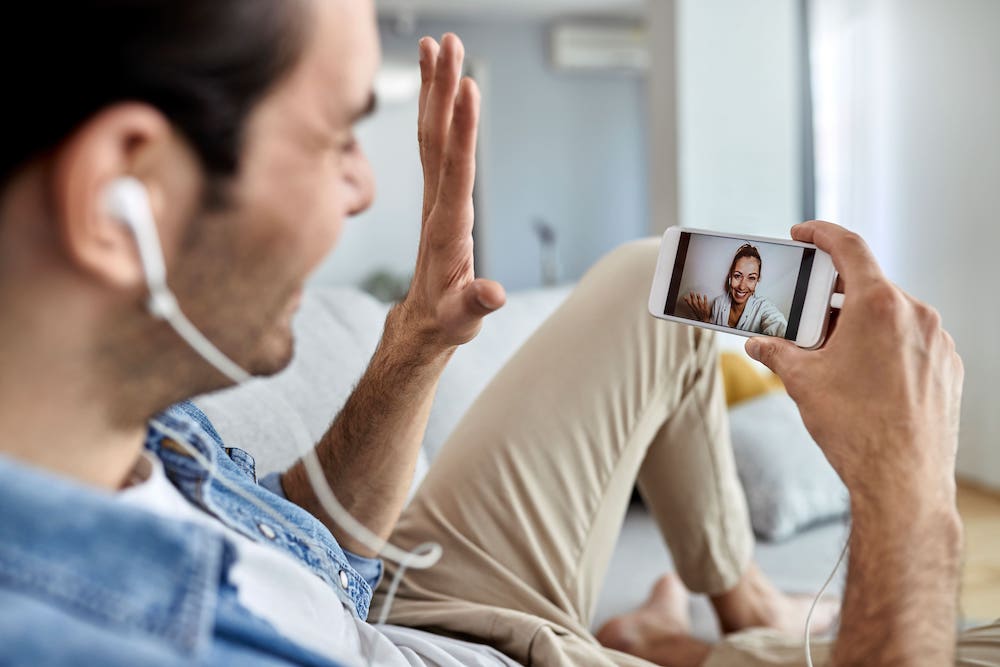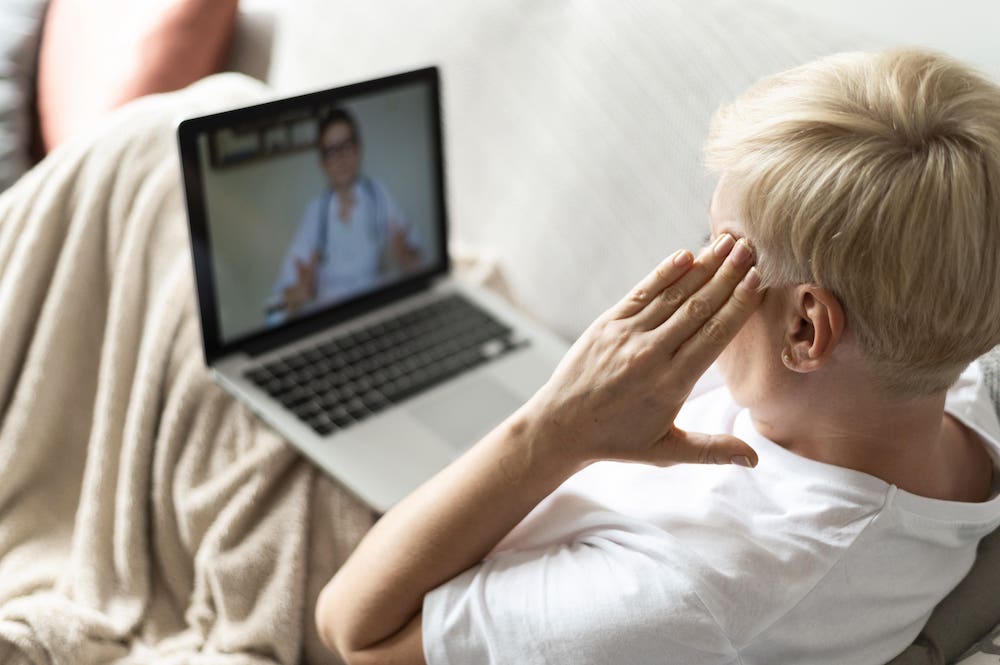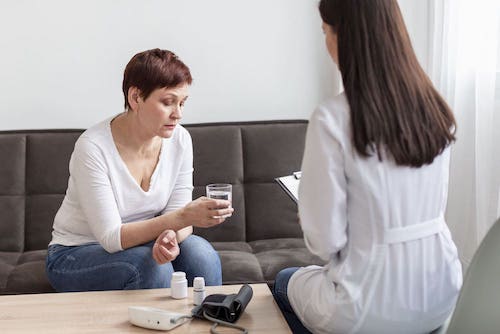Telepsychiatry has been getting a lot of attention in recent years thanks to the rise of telehealth adoption. But what is telepsychiatry and how does it work?
Telepsychiatry uses videoconferencing, phone consultations, and other communication channels to provide psychiatric care. While this may sound like a new concept, the use of videoconferencing in psychiatry dates all the way back to the 1950s. The internet has made this form of healthcare more accessible to the general population.
In this article, we’ll take a closer look at how telepsychiatry works and its effectiveness.
Announcement: Telepsychiatry allows patients to get psychiatric care remotely via videoconferencing, email, phone, and other communication channels. Through these technologies, patients can get the care they need regardless of their location and physical limitations. We explore how telepsychiatry works, its efficacy, and its untapped potential.

How Does Telepsychiatry Work?
Telepsychiatry works similarly to other forms of telehealth. Patients connect with healthcare professionals via video conferencing platforms or over the phone to discuss their issues and get the treatment they need. Let’s take a closer look at the components of telepsychiatry.
Direct Clinical Services: Consultation, Assessment, and Treatment
Direct clinical services are at the heart of telepsychiatry. Using technologies like video chat, psychiatrists can provide many of the same services that they provide in person, including:
- Consultations
- Assessments
- Treatment plans
Today, a psychiatrist can talk to a patient through a video chat call to discuss their issues, medical history and more. Telepsychiatry services can include:
- Individual therapy
- Evaluations and diagnoses
- Group or family therapy
- Medication management
- Substance abuse treatment
For individuals who have difficulty leaving the house or finding transportation, telepsychiatry is especially beneficial. It allows them to get the help they need without having to leave the house.
Teleconsultation: Bridging the Gap Between Primary Care and Psychiatry
When individuals seek help for their symptoms, they typically visit their primary care physician first. From here, they may be referred to a psychiatrist.
A teleconsultation can help bridge the gap between primary care and psychiatry by allowing the individual to get an evaluation or diagnosis from a psychiatrist remotely.
Tele-education: Enhancing Knowledge and Skills in Remote Areas
Tele-education isn’t a new concept. In fact, this practice has been in use for many years to provide continued education to healthcare professionals in remote areas.
However, tele-education has become more effective, efficient, and engaging in recent years, thanks to improvements in video and internet technology.
Healthcare professionals can enhance their knowledge and skills via e-learning platforms, moving at their own pace and when it best fits their schedule.
Telepsychiatry Appointment
A telepsychiatry appointment is very similar to an in-person appointment. Once you receive a referral from your doctor, you or your doctor can schedule your first appointment.
On the day of your appointment, you may need to:
- Log into a video conferencing platform and wait for your psychiatrist to join the chat.
- Wait for a telephone call.
Most telepsychiatry appointments take place over video chat, but if this is not an option, a traditional phone call is a viable alternative.
It’s important to make sure that you have all relevant information and records on hand for your appointment, including a list of your prescriptions. Also, create a list of questions you want to ask the psychiatrist.
Telepsychiatry appointments follow the same format and guidelines as in-person appointments. Psychiatrists can:
- Prescribe medication if needed
- Develop treatment plans
- Refer you to other services when necessary
- Schedule follow-ups

Is Telepsychiatry Effective?
Telepsychiatry can be just as effective as in-person appointments. However, it’s important to remember that every individual is different, and some people only see progress through in-person meetings.
Research has found that telepsychiatry can be an effective method of treatment for:
- Schizophrenia
- Anxiety
- Substance abuse
- Post-traumatic stress disorder (PTSD)
- Eating disorders
- Depression
According to the American Psychiatric Association, telepsychiatry is equivalent to in-person care when it comes to:
- Treatment efficacy
- Diagnostic accuracy
- Patient satisfaction
- Quality of care
Some individuals prefer telepsychiatry services to in-person meetings, particularly individuals with severe anxiety or physical limitations.
Frequently Asked Questions About Telepsychiatry Services in Clients
Because telepsychiatry is still a relatively new concept, many clients have questions. Some of the most frequently asked questions include:
1. How secure is my information during a telepsychiatry session?
Privacy and security are valid concerns when it comes to telepsychiatry sessions. But patients can rest assured that their information is secure and kept confidential.
According to the American Psychiatric Association, patient confidentiality and privacy are equivalent to in-person appointments.
HIPAA requires all data that is transferred or stored to be encrypted, including:
- Video
- Audio
Video conferencing software must include encryption. AES 256-bit encryption is the industry standard, and it exceeds the HIPAA requirement.
2. Can all psychiatric conditions be treated through telepsychiatry?
Online telepsychiatry can be used to treat a wide range of conditions, but it does have its limitations.
For example, telepsychiatry is not appropriate for patients who are in an emergency situation or a state of crisis. The only exception is if the patient is already in a healthcare facility and the psychiatrist has support from other healthcare providers.
Additionally:
- Psychiatrists cannot prescribe controlled substances via telehealth sessions.
- Some patients simply do not respond well to telepsychiatry and can only make progress through in-person sessions.
With that said, telepsychiatry has been shown to be effective for a diverse range of mental health conditions, including more serious disorders such as PTSD and schizophrenia.

3. How do I know if online telepsychiatry is right for me?
Determining whether online telepsychiatry is the right choice for you is a personal decision. But it’s important to keep in mind that virtually anything that can be done in an in-person appointment can also be done through an online appointment.
Your psychiatrist can walk you through exercises and provide education and support.
However, if you are someone who needs in-person interaction, then telepsychiatry may not be a good option for you.
If you are facing an emergency situation or crisis, please seek care in a medical facility.
Summing Up
Telepsychiatry makes mental health care more accessible to patients and tears down physical barriers that make it difficult for some patients to get help. If you are struggling with anxiety, depression, PTSD or another mental health condition, telepsychiatry is worth exploring to see if it’s a viable option for you.



